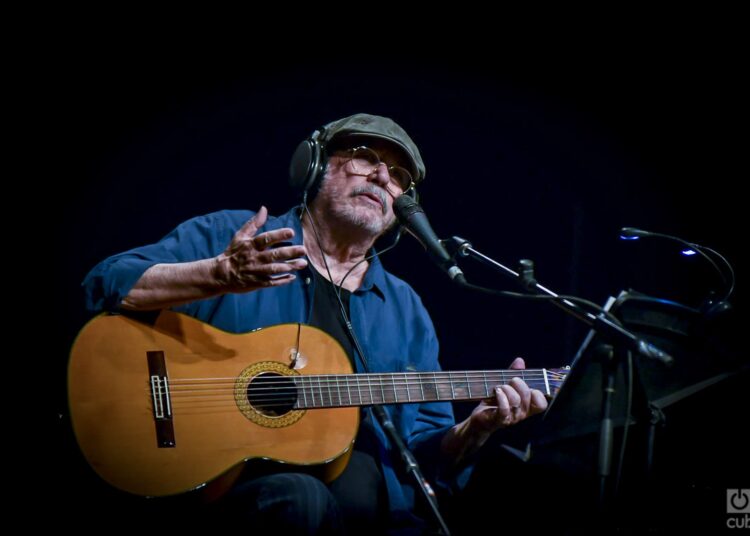After the pandemic-imposed hiatus from performing in front of audiences — which he used to dedicate himself to studio work, an activity interrupted only by several concerts in Madrid and Mexico City and one on the Isle of Youth — Silvio Rodríguez will tour Latin America.
After last stepping on stage two years ago, he is back in style, with a tour that includes no fewer than twelve concerts in five countries between September and October: Chile, Argentina, Uruguay, Peru and Colombia. The starting point, as is customary in his career, will be Havana.
“We will announce the exact date and location as soon as we know. I can only say it will be in the second half of September,” the singer-songwriter revealed to OnCuba.
From 2020 to the present, Silvio (San Antonio de los Baños, 1946) has released three new albums: Para la espera (2020), the first to be released on digital platforms and in which he once again plays the man and guitar, following Amoríos, when he had accompanied himself in a jazz band-style format; Silvio Rodríguez con Diákara (2021), originally recorded with the legendary band thirty years earlier; and Quería saber (2024), in which, as in his previous works, he combines “various types of music and musical treatments” and sings, among other themes, about the open wound of emigration.
He also participated in Heréticas, Vicente Feliú’s posthumous album, and has collaborated with international and Cuban artists. He’s currently working on another album, which is expected to be released this year: Cualquiera que nace en Cuba is its title.
In recent weeks, he’s been making headlines for the supersonic sale of his upcoming concerts. It was a given ever since the news of the tour, announced in his own voice and image in a video, was celebrated by thousands of Latin American fans of all ages.
From Havana, while he puts the finishing touches on the new album, Silvio takes a few minutes to give us a sneak peek at what’s coming up and briefly comment on what it means to be, once again, the target of misinformation.
This is the first time you’ll be performing in Cuba after the pandemic (2020). How do you feel about that? Did you miss the stage?
The last time I performed in public was on the Isle of Youth, at the closing ceremony of the first Isla Verde Festival, an eco-conscious event conceived and directed by Jorge Perugorría with friends and family. I suppose it was in 2023, because this year they celebrated their third. I haven’t performed since.
When the pandemic hit, we had to cancel the concerts in the neighborhoods. Later, the economic situation, fuel shortages, and lack of energy security prevented us from restarting.
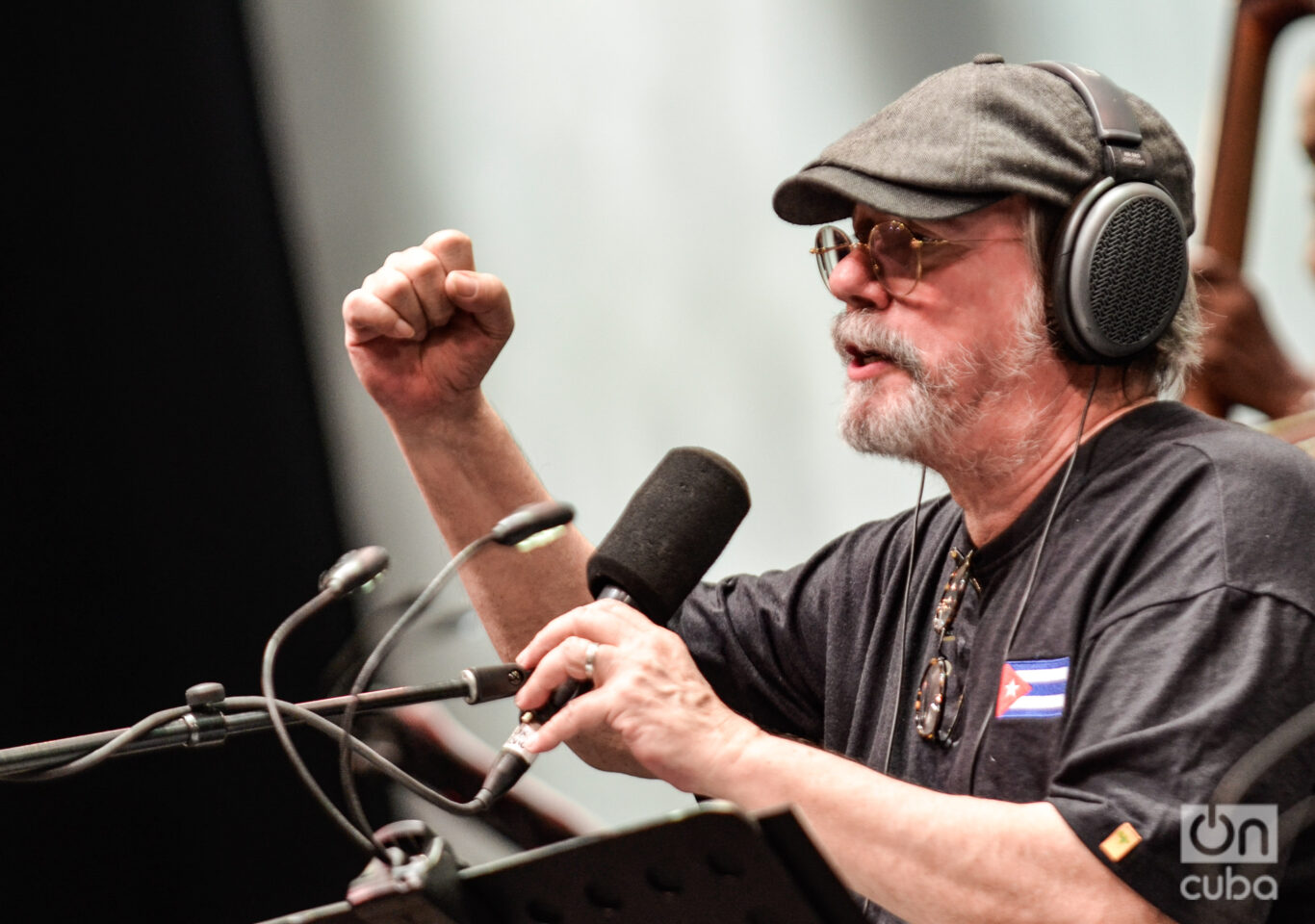
It’s also the first time you’ve toured as a group in several years. What are your expectations? How did you receive the news of the quick ticket sales?
Since I started singing professionally, in 1967, I’ve never gone so long without performing. There came a time when I thought everything I’d experienced had been a dream; people talked to me about my work and I felt like they were confusing me with someone else.
Somehow, I’ve managed to break out of that involuntary hiatus and begin a recovery. I called the musicians, and they all responded immediately, with great affection.
Initially, we planned 10 concerts, and to my surprise, they sold out in hours. That’s why we had to add two more and expand the capacity of the penultimate concert, which will be in Medellín, Colombia.
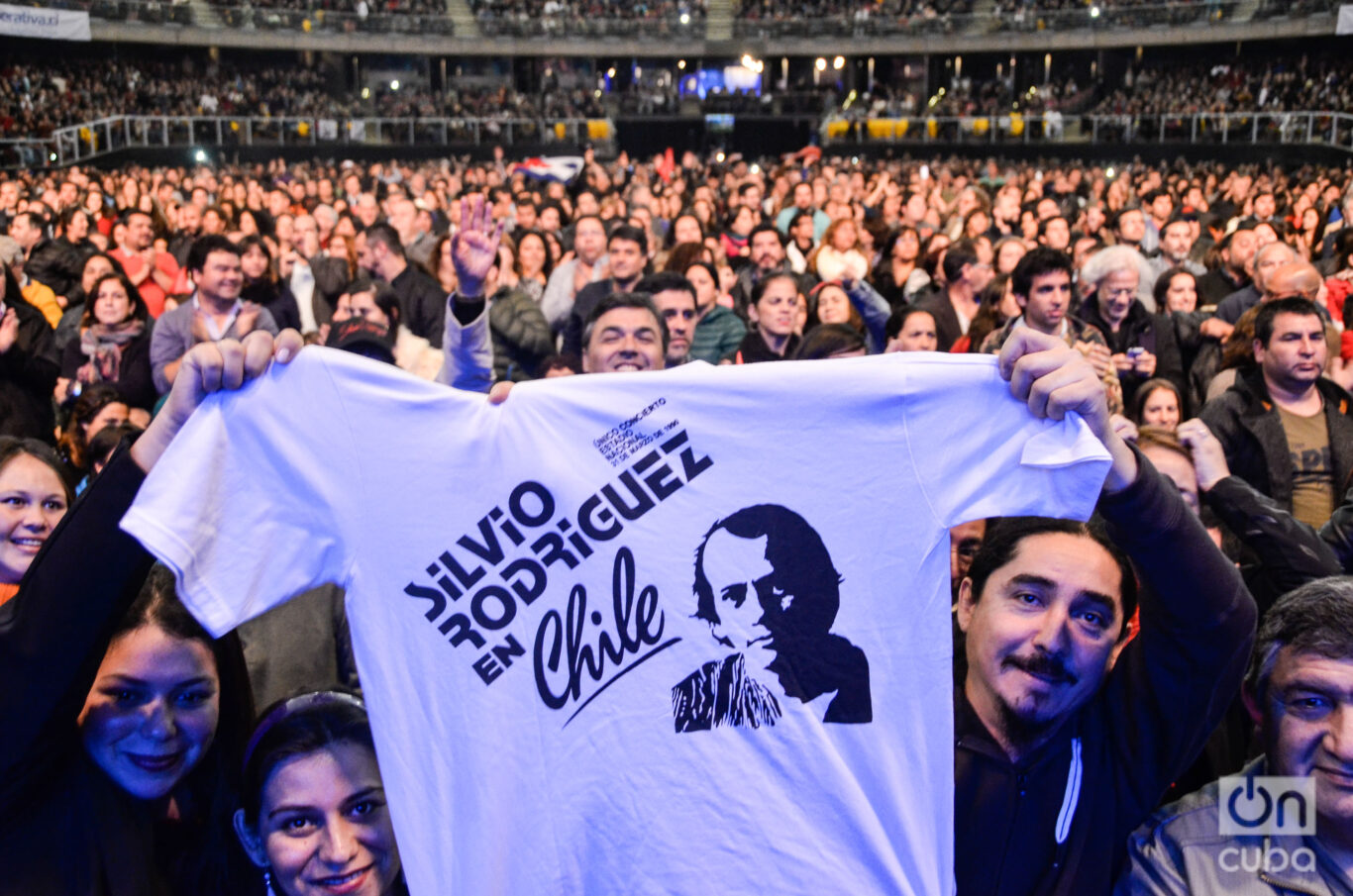
These years away from the stage have been no less prolific in your career. Since the pandemic lockdown, three new albums have been released. These have been years in which you’ve primarily done studio work. How do you relate to that strictly musical aspect, away from the public?
Making my work known, that is, recording and releasing albums, is what has brought me to the stage. Although, honestly, the invisible and purely creative aspect is what I’ve always liked the most.
I was lucky that some people were motivated by what I was doing; that’s an immense privilege, I’m very aware of that.
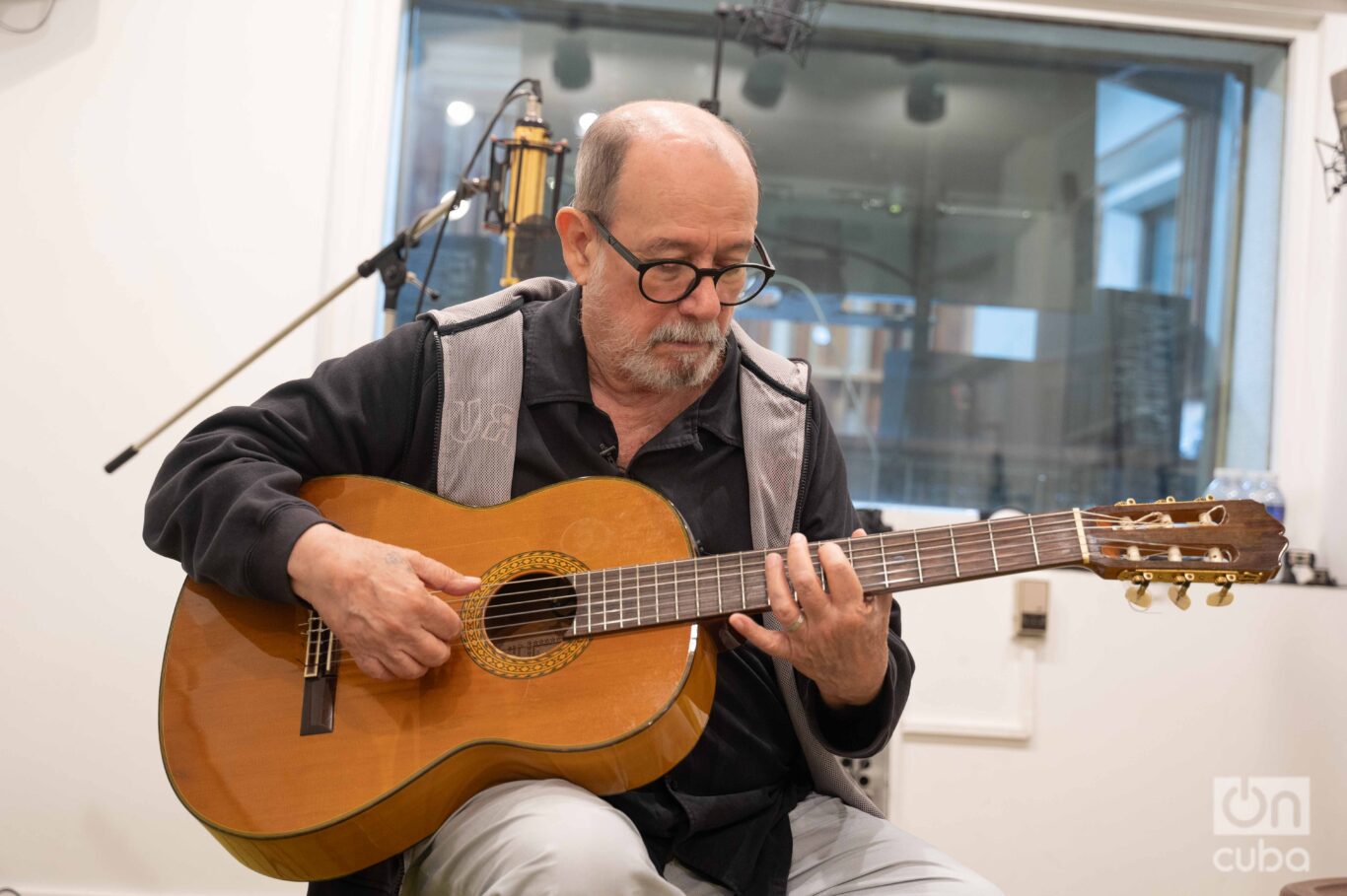
What will the tour repertoire be? What are the musical proposals with the band?
It’s essential that we play the songs for which people love us. We can’t betray that, although I haven’t liked to settle for what’s easy, and I always introduce some new things.
We’re also thinking of revamping the approach to some of our songs. I’m planning on including a small choir and also a space where Malva [Rodríguez], Niurka [González] and I can perform two or three old friends’ songs.
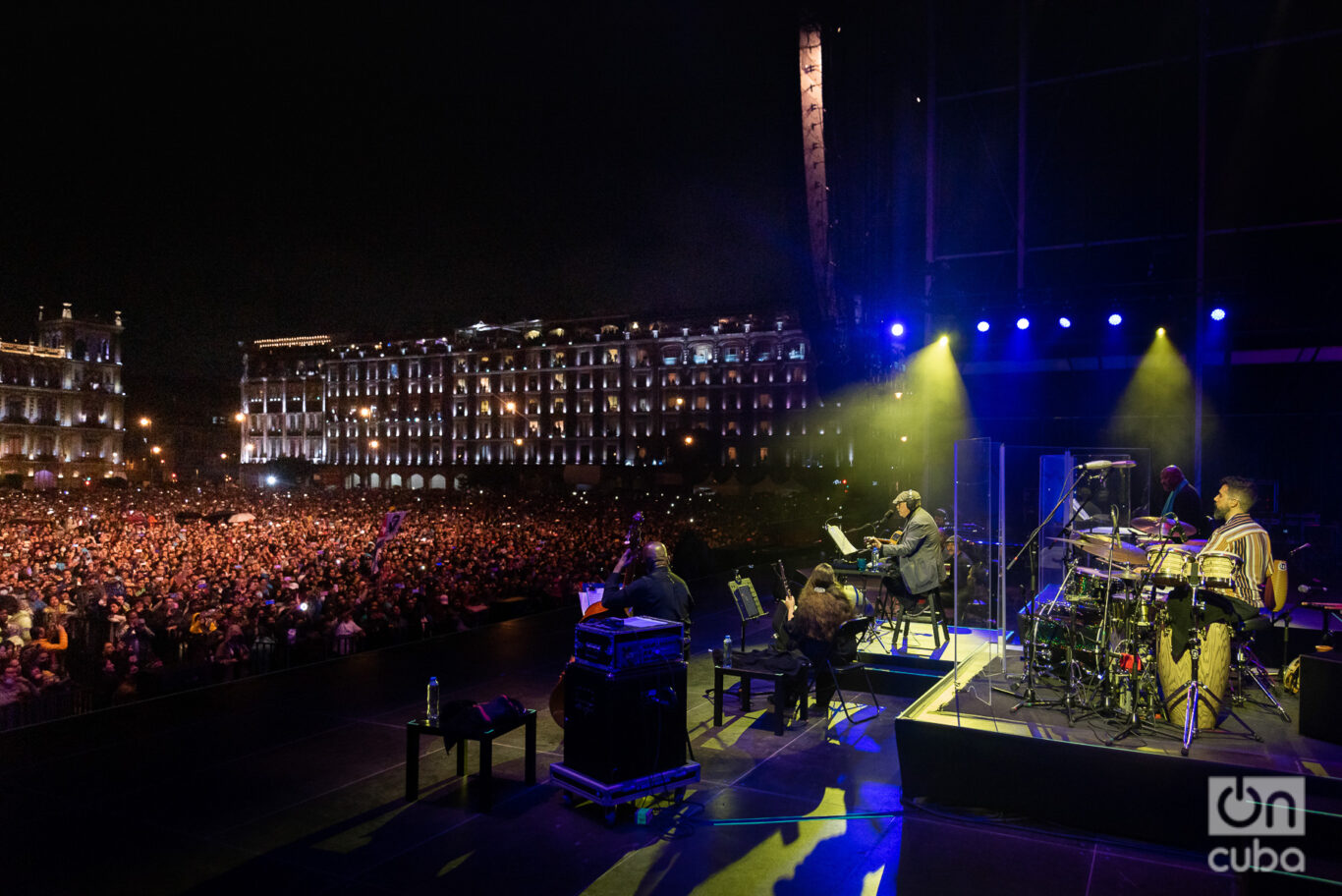
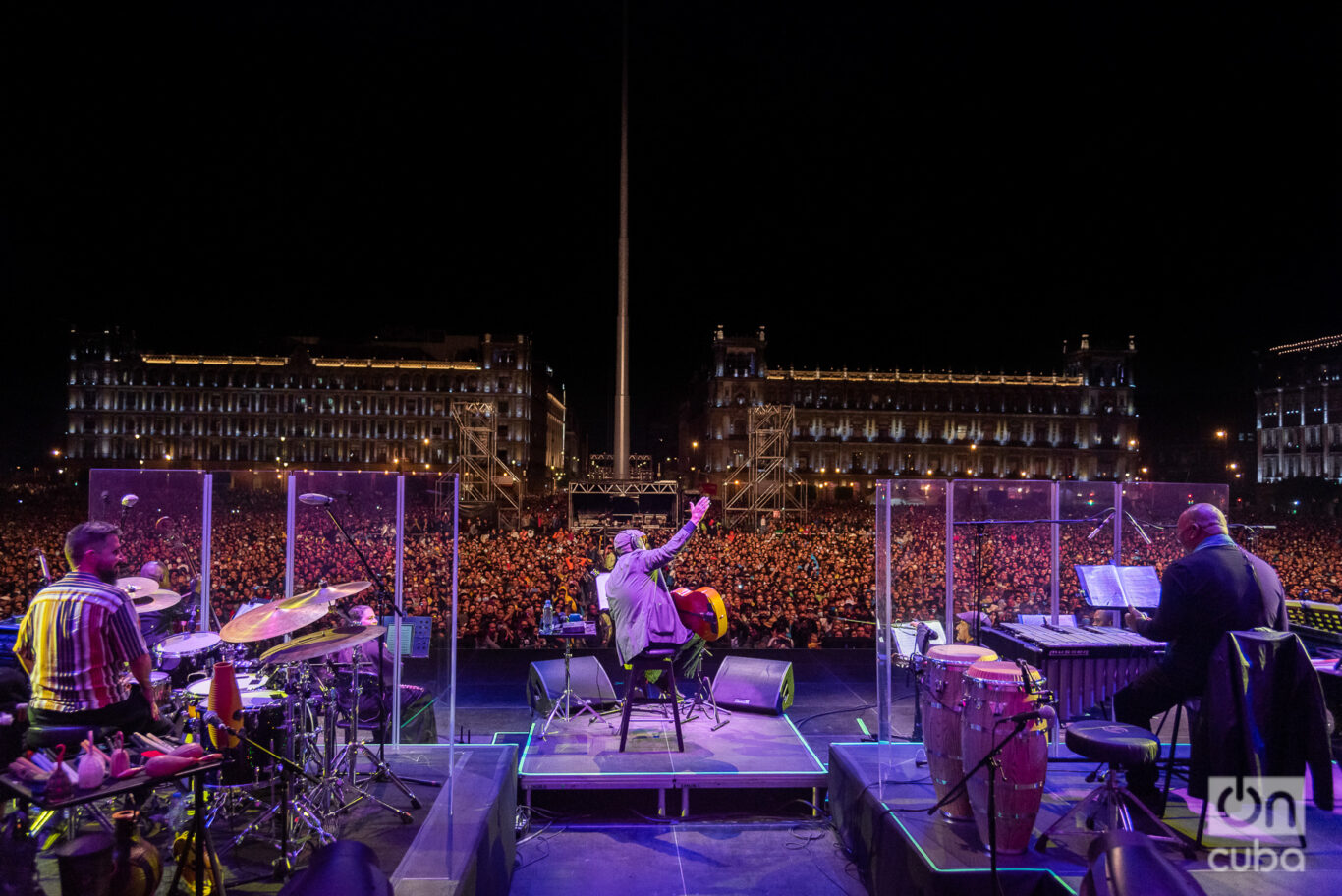
What criteria did you use to select the countries where you’ll perform?
These are countries we haven’t visited in at least seven years. The selection was a proposal from Alfiz Producciones, a company we’ve been working with for some time.
Have you ever done a tour as extensive as the one of the coming months?
The first time we were in Argentina, Pablo and I, in 1984, performed 17 nights at a stadium called Obras Sanitarias.
In fact, I’ve done longer and more intense tours; but never after so long without doing them.
However, I’m sure they’re going to be great. I have plenty of reasons to trust our team of musicians and technicians.
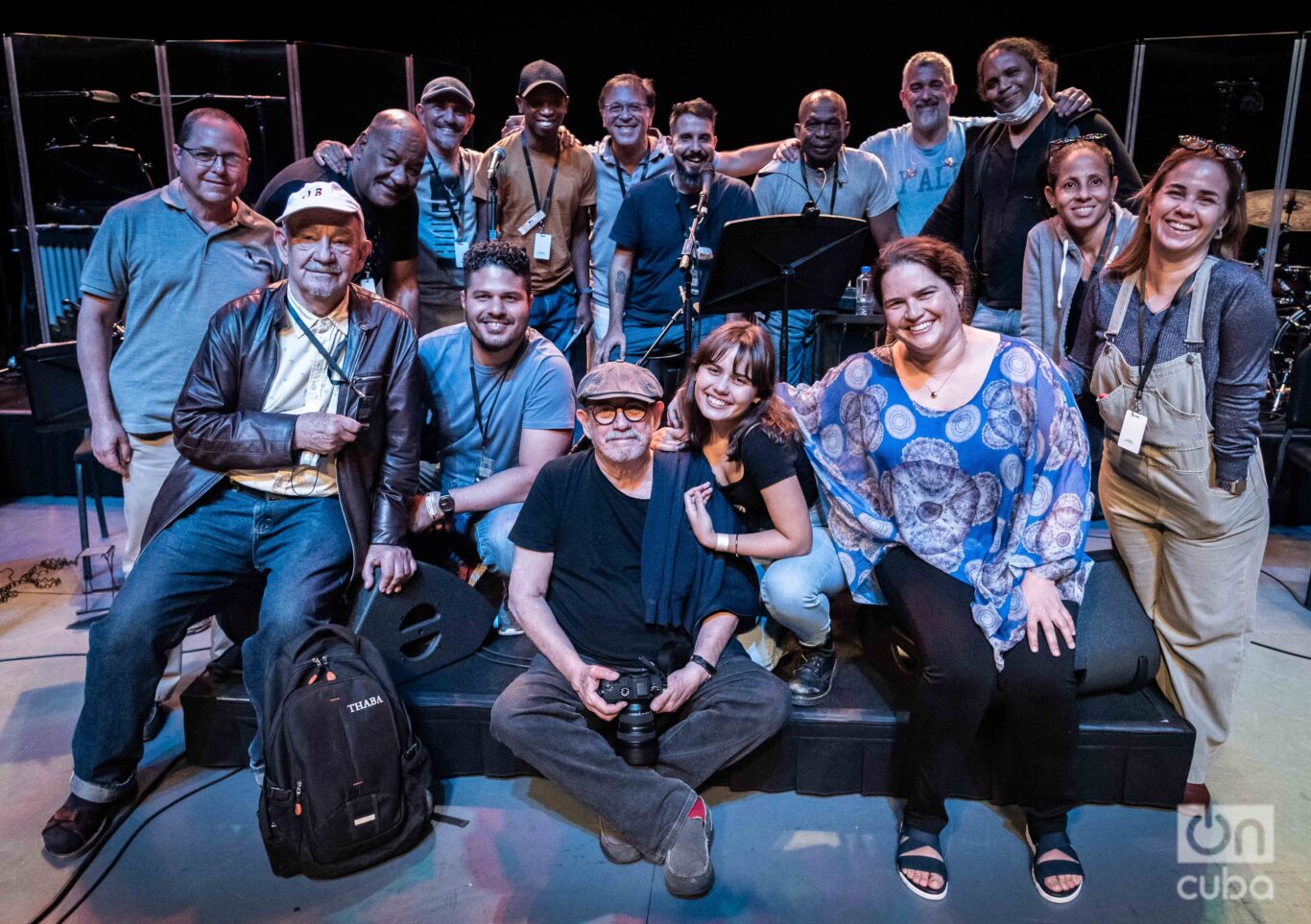
What are you working on these days? Are you recording anything, or are you already rehearsing for the upcoming concerts?
I’ve almost finished a work that’s going to be called Cualquiera que nace en Cuba. The final touches on a record production for me (and for those who work with me) are usually agonizing. I’m on full alert, changing and improving things. But I think we’ll be able to release it before the tour.
Here are the lyrics of the title track:
Cualquiera que nace en Cuba (Anyone born in Cuba)
Cualquiera que nace en Cuba
puede llamarse cubano,
aunque le guste la uva
más que el plátano manzano.
Cubano del escabeche
y cubano del lechón.
Cubano como la leche
y cubano de carbón.
Cubano que no adivina,
cubano de lucidez.
Cubano de dama china
y cubano de ajedrez.
Cualquiera que nace en Cuba
puede llamarse cubano,
aunque le guste la uva
más que el plátano manzano.
Cubano con su cubana
y cubano transexual.
Cubano de Centrohabana
y cubano provincial.
Cubano de serenata,
cubano de echar un pie.
Cubano de dar la lata,
y cubano de dar fe.
Cualquiera que nace en Cuba
puede llamarse cubano,
aunque le guste la uva
más que el plátano manzano.
Cubano falsificado
y cubano original.
Cubano insubordinado
y cubano editorial.
Cubano de La Marina,
cubano del Malecón.
Cubano de las sardinas
y cubano tiburón.
Cualquiera que nace en Cuba
puede llamarse cubano,
aunque le guste la uva
más que el plátano manzano.
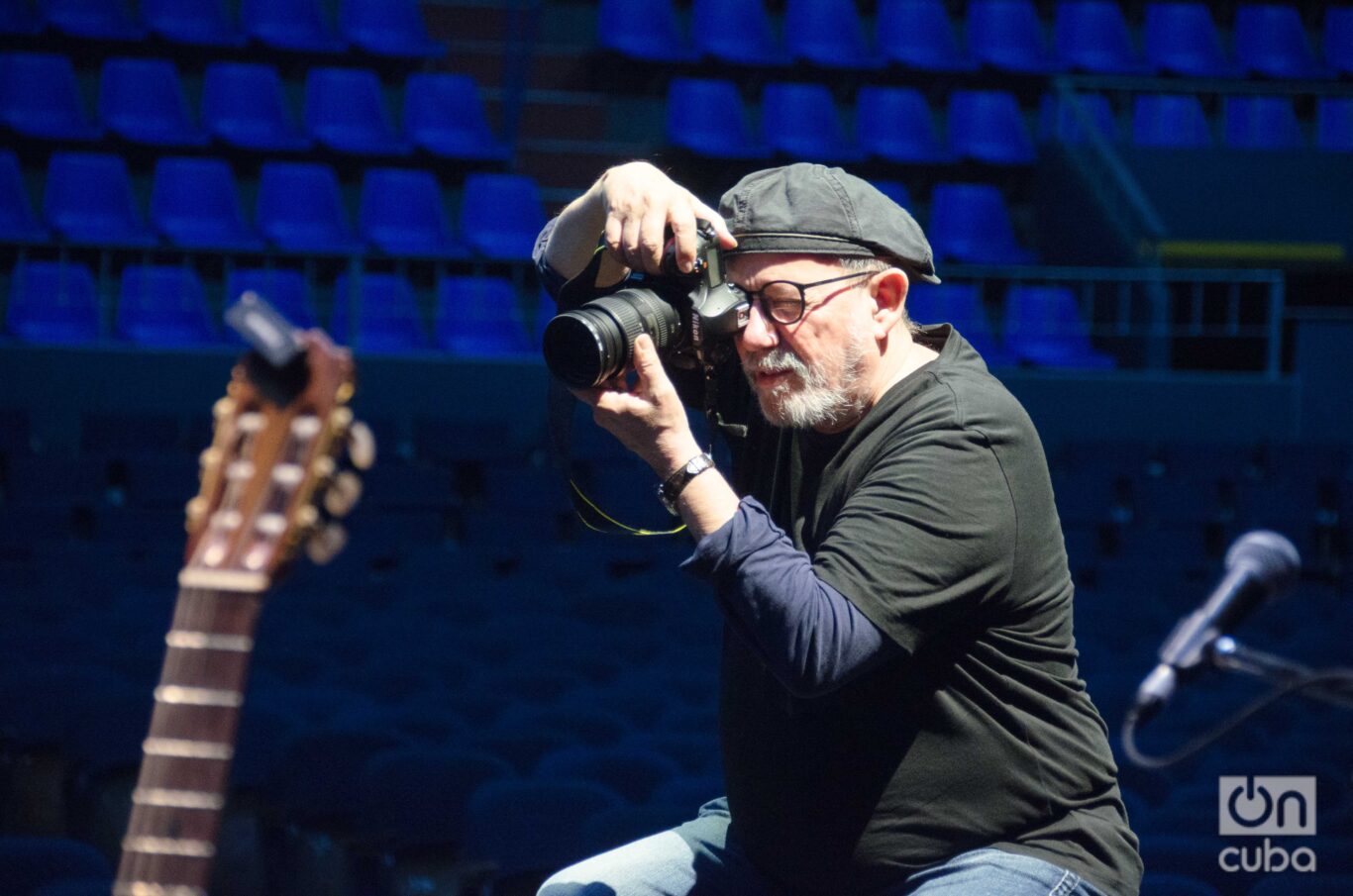
Many young artists, from different styles, ask you for collaborations. One just came out with the Spanish artist Pedro Pastor, and another is about to be released, with the Argentine rapper Milo J. Is this a format you enjoy?
In both cases, I did them because they are very talented guys. And note that last year I even posted an announcement on my blog, saying I wouldn’t be doing any more collaborations. I don’t take them lightly and I usually dedicate a lot of time to them. And the truth is, I have less and less time, and I want to use the time I have left to finish a lot of pending work. Even several albums.
On May 25, you published the lyrics of “El necio” (1991) on your blog, with a headline in parentheses: “Forgive my insistence.” What made you send that message?
I republished “El necio” to make it clear (to anyone who needs it) that in some essential aspects I am the same. Since I have always been self-critical, some are confused and think that if I criticize, I am giving in. This happens because, in an attempt to defend ourselves, we hand over criticism to the enemies of the revolutionary project. It was a political mistake for which we are paying dearly. Just as we continue to pay for the great economic mistake that was the “Revolutionary Offensive” of 1968.
But I would rather be dead and destroyed than betray that Martí who said in his posthumous letter that everything he had done and would do was to prevent the United States from seizing Cuba and Puerto Rico and from descending with that force upon the peoples of Our America.
And let it be known that I do not consider myself an enemy of the United States, where I have met many good people who have nothing to do with the abusive imperial policy.
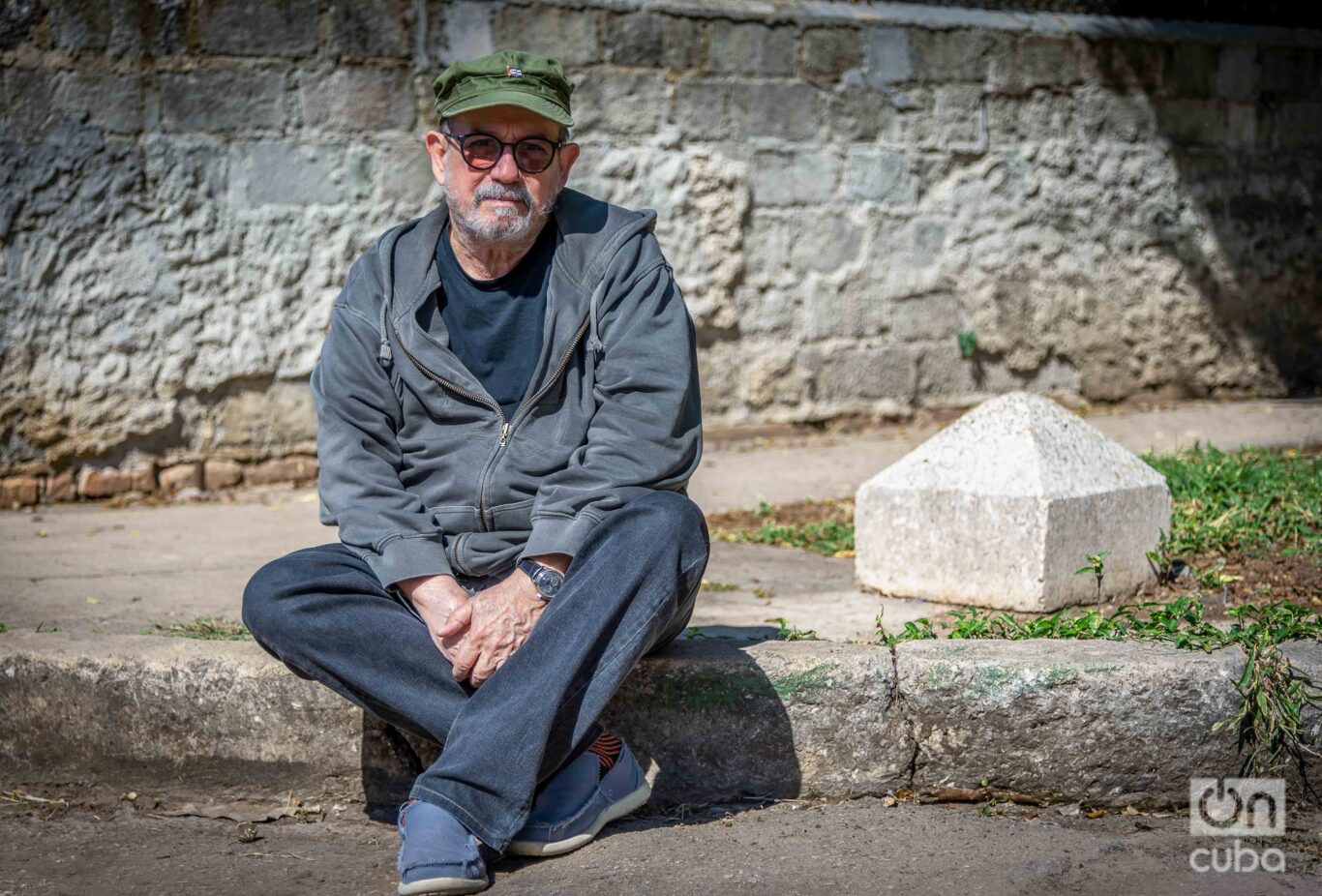
What remains the same and what has changed in what you sing about in that song, compared to 34 years ago, when it was written?
I wouldn’t change a single comma of how I wrote it and why I wrote it: I fully agree with it. How others understand it is their business.
Many people reacted to a false news story announcing that you were settling in Spain. It’s not the only hoax that’s been spread about you lately. Why do you think this happens, and how do you deal with it?
Honestly, I’m very oblivious to all of this. A friend suddenly tells me some nonsense, and it always makes me laugh.
What do you think about this time when the truth (without capital letters) — or even a verisimilitude — is so difficult to establish for so many people connected to an ocean of information sources of all kinds?
It’s something that was coming. In “Alabanzas” I remember singing that the voice of the antennas would replace the gods and that we would reach a new Middle Ages. I don’t know if I exaggerated.
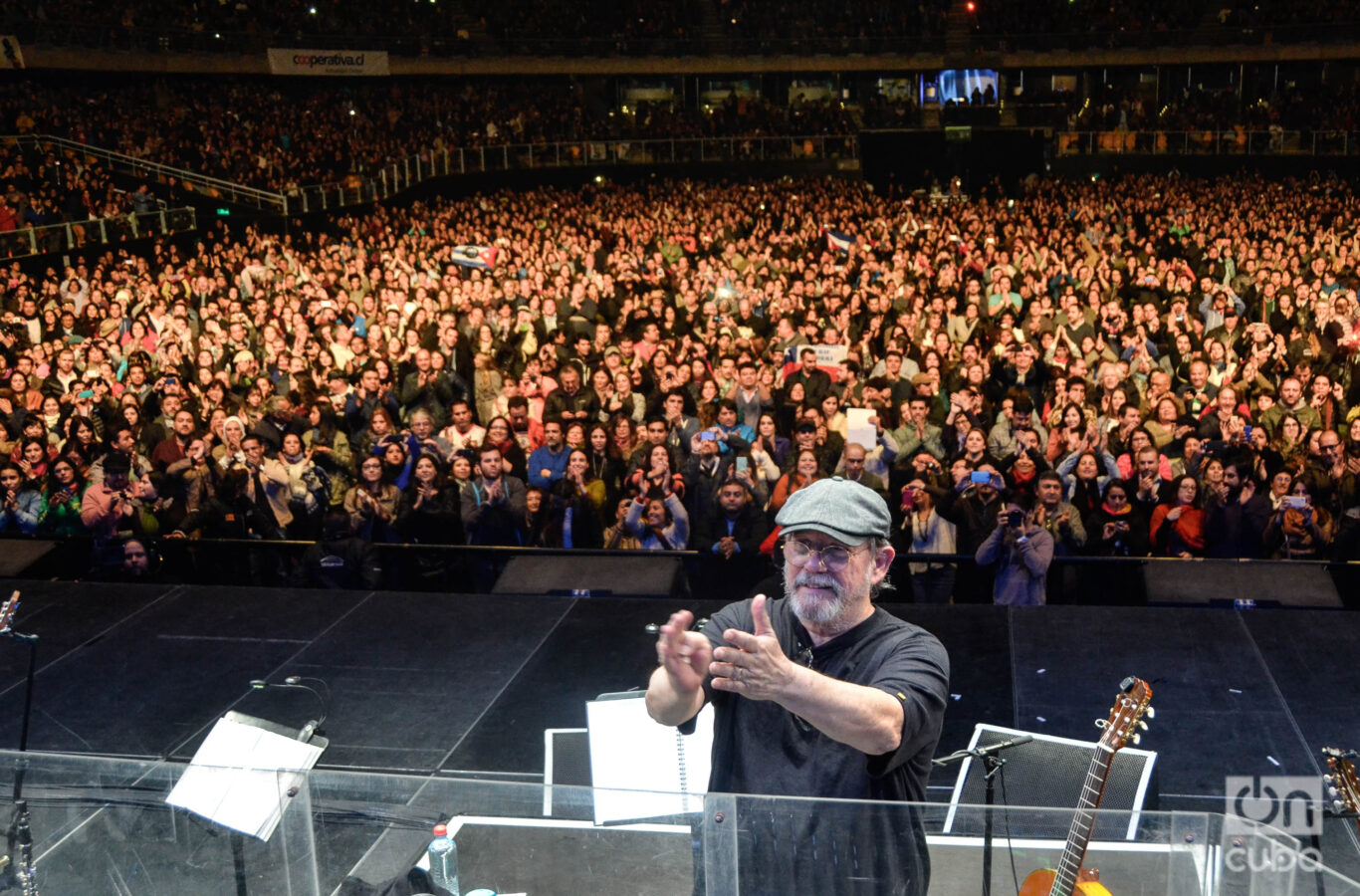
After a hiatus, you’ve returned to publishing frequently on your blog, Segunda cita. What made you return to the blog that was so active for more than a decade, both for your posts and for the debates that took place in the comment forum?
Segunda cita has had three stages: the first, for a little over a year, was completely open. I had to start monitoring (in the second) when rudeness and unacceptable offenses began to appear.
The second stage, the monitored one, lasted until the day the blog turned 12. I would have liked to continue like this, but I didn’t have the time (in fact, the last few years have been difficult).
Then came this third stage, where I simply publish what I think. In many places, I meet people who yearn for the second stage. I yearn for it too. But I can’t anymore.
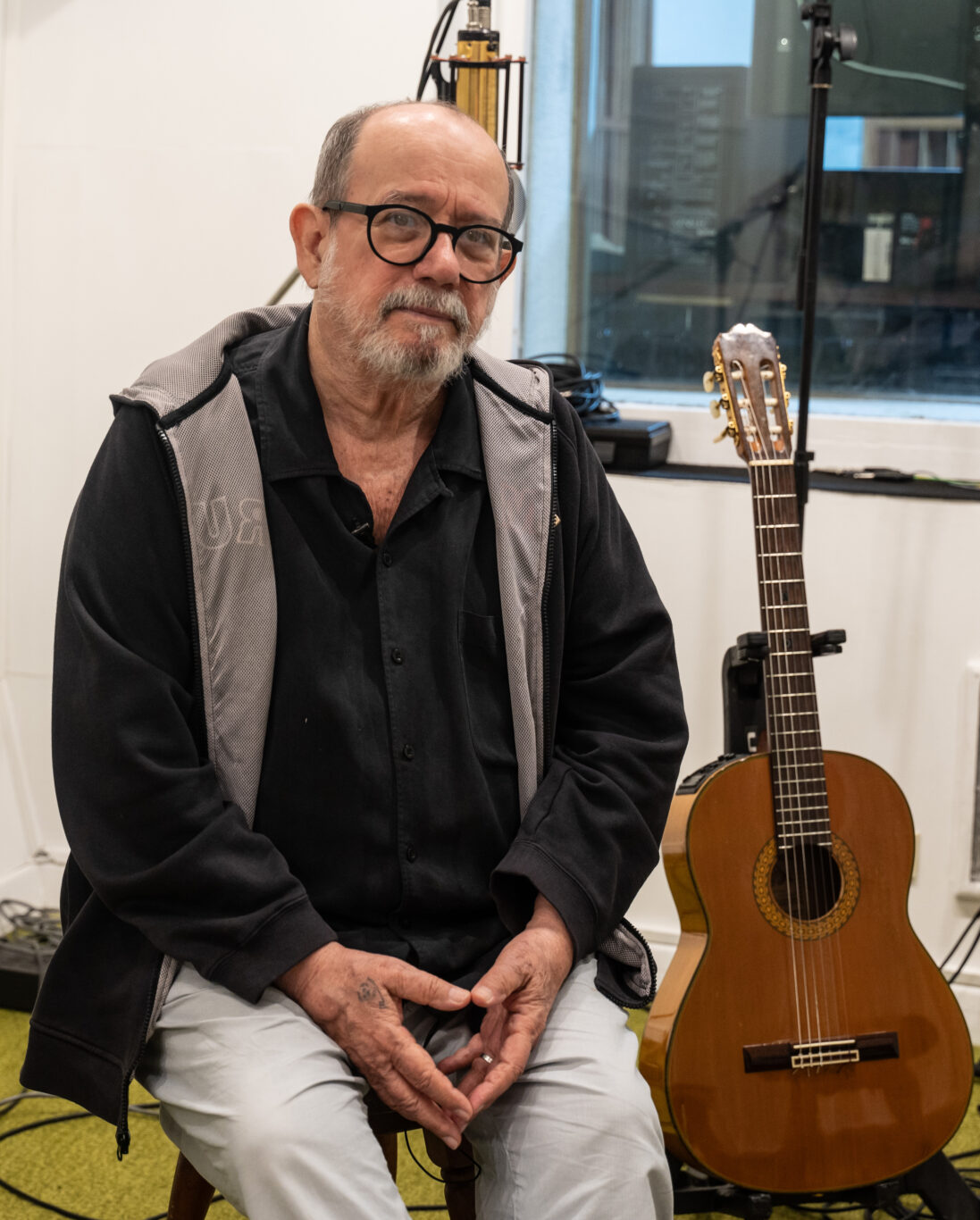
Almost half a century ago, you sang: “Y se asesinan palestinos por tandas de miles”; a line that is chillingly relevant today. After 80 years, in Europe, there is once again talk of a war that is about to happen. Are we living in a moment of fateful déjà vu?
Weapons must cease to exist. The proliferation of destructive devices and artifacts is one of the clearest signs of how inhuman we are. Down with weapons.
How do you see our little island within this turbulent world? Sociologists and other experts speak of a Cuban “policrisis”; more than just a crisis.…
Cuba is a small, young country barely half a millennium old that is still struggling to free itself from some of the many forms of imposed dependency (read: colonialism). Geography, our location, doesn’t help us, given how close we live to a large, greedy country that has been trying to absorb us for almost two centuries. This has deformed us; much of the time we could have invested in improving ourselves has instead been spent defending ourselves.
On the other hand, we have a world in acute moral crisis; a world where the dispossession and murder of peoples are carried out with flagrant impunity.
Not long ago, I was telling someone that when we were children, we were made to believe that adults were worthy of imitation and that we should behave like them. In the same way we looked up to our elders, poor nations used to look up to the “great countries” or developed nations. Looking at the world today, I realize that all of that was just wishful thinking.
Today, the example set by the powerful scandalously contradicts consideration for others, when the law of the strongest is brutally imposed. It’s as if not the slightest trace of Mr. Jekyll remains in the face of the overwhelming presence of Mr. Hyde.
2025 Latin American tour program
Chile
Santiago de Chile-Movistar Arena
September 29
October 1
October 5
October 6
Argentina
Buenos Aires-Movistar Arena
October 11
October 12
October 21
Uruguay
Montevideo-Antel Arena
October 17
October 18
Peru
Lima-Costa 21
October 25
Colombia
Medellín-Envigado Sports Center
October 31
Cali-Cañavalarejo Arena
November 2

